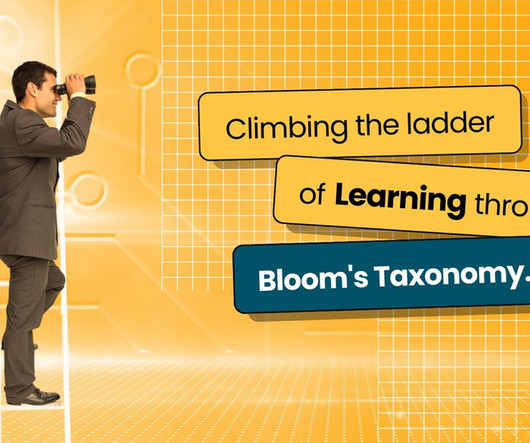How to use Bloom's Taxonomy in Custom eLearning Content Development?
Thinkdom
APRIL 7, 2024
For years, Bloom's taxonomy has helped to transform traditional learning by providing a framework for educators. Bloom's Taxonomy is a valuable tool for creating impactful learning experiences in L&D. However, in 2001, it was revised to inculcate modern concepts of learning into the system.

















Let's personalize your content